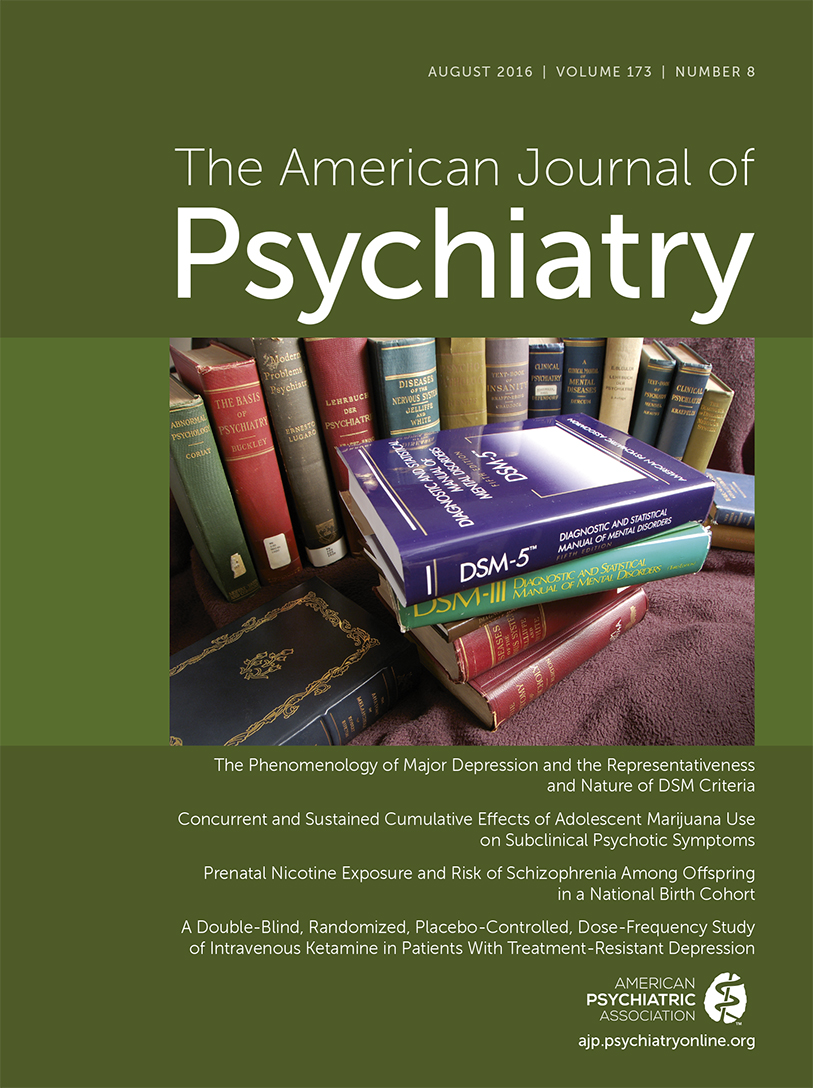Cannabis, Psychosis, and Mortality: A Cohort Study of 50,373 Swedish Men
Abstract
Objective:
The authors assessed 1) the overall risk of death among cannabis users compared with nonusers and the extent to which psychosis affects excess mortality; 2) mortality among persons with psychotic disorders and the extent to which cannabis use affects excess mortality; and 3) the interaction effect of cannabis use and diagnosis of psychotic disorders on mortality.
Method:
This was a longitudinal study of 50,373 Swedish male military conscripts (ages 18–19) who were followed in the National Cause of Death Register up to around age 60. Cox proportional hazard modeling was used to assess risk of death in relation to baseline cannabis use and diagnosis of psychotic disorders.
Results:
Subjects with a baseline history of heavy cannabis use had a significantly higher risk of death (hazard ratio=1.4, 95% CI=1.1, 1.8) than those without such a history. The authors found an excess mortality among subjects with psychotic disorders, but the level did not differ between those with a history of cannabis use (ever users: hazard ratio=3.8, 95% CI=2.8, 5.0; heavy users: hazard ratio=3.8, 95% CI=2.6, 6.2) and those without such a history (hazard ratio=3.7, 95% CI=3.1, 44). No interaction was observed between cannabis use and diagnosis of psychotic disorders with regard to mortality.
Conclusions:
The results suggest that individuals with an early history of heavy use of cannabis are at a higher risk of death than those with a history of no use of cannabis. Although the authors adjusted for several confounders at baseline, the results should be interpreted with caution because of a lack of information on confounders in the period after conscription.



